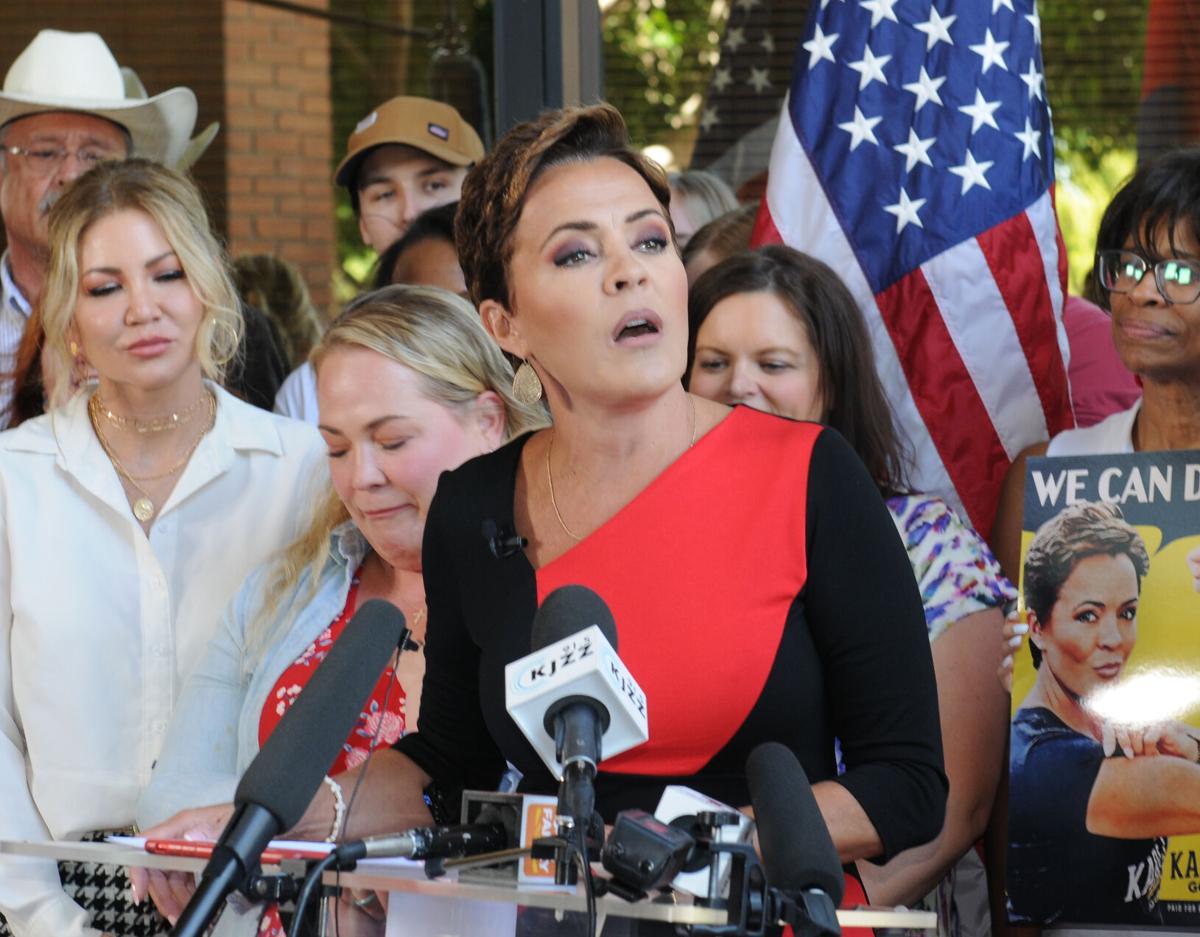PHOENIX — Kari Lake will get a chance to argue she’s entitled to examine signatures on ballot envelopes from the 2022 election in her bid to overturn the gubernatorial election.
Maricopa County Superior Court Judge John Hannah has set aside two days next month to hear the contention by Lake’s attorney, Bryan Blehm, that the ballot envelopes and the signatures on them are subject to public scrutiny.
Lake contends an examination would show they do not match other signatures already on file. That would bolster her repeated claims — all unproven so far — that invalid votes were counted and affected her 17,117-vote loss to Democrat Katie Hobbs.
Blehm argues Maricopa County acted illegally in denying Lake access to the envelopes because he says that violates the state’s Public Records Law.
Even if Hannah concludes the ballot envelopes and their signatures are public records, none of that may help Lake overturn her loss.
Deputy County Attorney Joseph La Rue said anything Lake obtains now is legally useless in her pending appeal of another judge’s ruling in May that the Republican contender never proved that misconduct or illegal activity affected the outcome of the election. That judge confirmed that Hobbs was elected.
“Despite Lake’s claim that the records she seeks in this public records lawsuit are the ‘lifeblood’ of her election contest, her election contest is over,’’ La Rue said.
Of Lake’s appeal, he said appellate courts cannot consider evidence that was not presented at trial.
And Lake never raised the claim of mismatched signatures when she first sued to overturn the results. Nor did she seek a court order in that case for the production of the ballot envelopes.
Lake is asking to see all 2022 general election ballot affidavit envelopes, which are mainly from voters who voted early by mail.
By law, those envelopes contain the signatures of the voters. Election officials then compare those signatures with others from the same person already on file. If they are determined to match, the envelope is opened and the ballot is removed for tabulating.
Lake has previously argued that the county did not do the required verification, citing statistics showing 274,000 signatures were approved in fewer than three seconds each and 70,000 in two seconds or less. But Maricopa County Superior Court Judge Peter Thompson, ruling in her direct challenge to the election results, said those numbers were irrelevant.
His ruling is the one awaiting action by the state Court of Appeals.
Now, using the claim of public records, Lake is seeking evidence of mismatches.
However, once election officials say they are satisfied a signature matches, the ballots are separated from the envelopes. That precludes Lake from claiming that specific votes for Hobbs should be discounted.
Instead, Lake appears to be hoping to find sufficient questionable signatures among all ballots to show that the results of the election and her 17,117-vote shortfall are in doubt.
“If you truly ran a great election, what are you hiding?’’ Lake asked in a social media post. “We’re going to find out.’’
Lake contends ballot envelopes are no different than any other document possessed by public officials. State law says such materials must be made available to “any person’’ upon request.
La Rue said it’s not that simple. “The presumption favoring disclosure is not absolute,’’ he said. Instead, La Rue said, courts must “perform a balancing test to determine whether privacy, confidentiality or the best interests of the state outweigh the policy in favor of disclosure.’’
He acknowledged that a voter’s registration record can be examined in a county recorder’s office.
But he also said state law protects certain personally identifying information that people provide when they register to vote. That includes month and day of birth, Social Security number, driver’s license number, the mother’s maiden name, state and county of birth, and “the records containing a voter’s signature.’’
La Rue said the state Election Code makes voters’ signatures retained in their voter registration records confidential.
But it appears he’s already lost that argument. “I am not convinced that the ballot affidavit is a voter registration record,’’ Hannah said in a June ruling.
What that leaves for next month’s hearing is the underlying question of whether those ballot affidavits fit within what is a public record and, if so, whether they are exempt from disclosure.
“If the requested documents were available through a public records request, ill-intended actors could conduct voter fraud on a massive scale,’’ La Rue argues.
Get your morning recap of today's local news and read the full stories here: http://tucne.ws/morning





